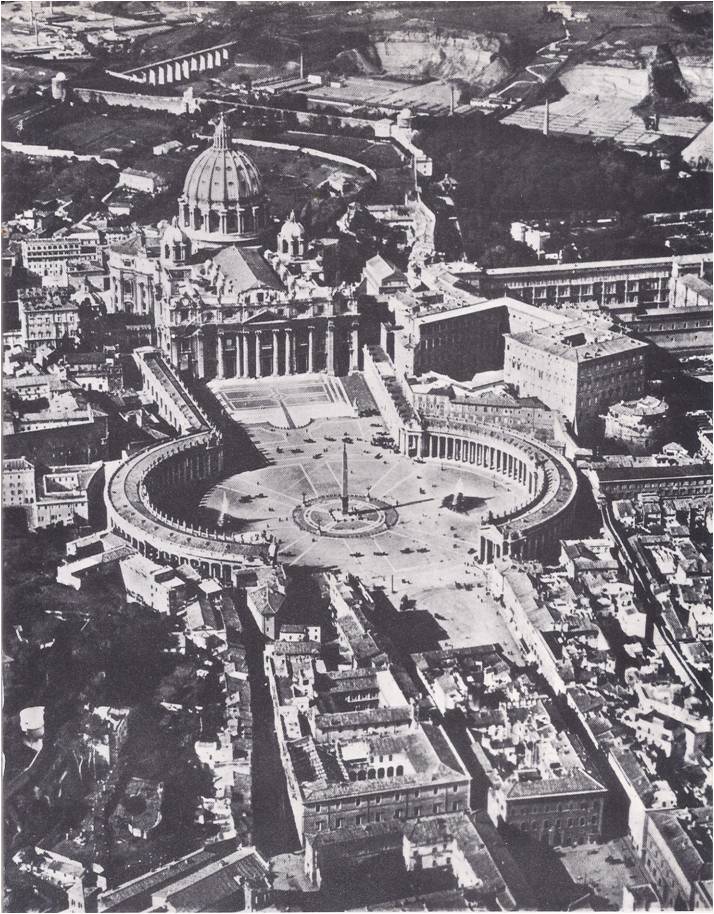If you had been a citizen of the ancient Greek city of Athens on a fine spring morning in 409 B.C., you would have gathered with thousands of your fellow citizens on a hillside inside the city. You would then have listened carefully to the discussion of various matters of business, conducted by the chairman and secretary of the meeting from a platform below and facing you. You would have seen an Athenian citizen thread his way from the hillside to this platform. This was a sure sign that he had a proposal to make to the voters. The citizen …
Read More »Tag Archives: Aristotle
Rome, the City of the Pope 1492-1564
In 1492, young Giovanni de’ Medici bade farewell to his father, Lorenzo the Magnificent and left Florence to take his place in Rome among the cardinals of the church. At sixteen, Giovanni was a nobleman in the court of the pope, a man of influence and power. That was fortunate, for when Giovanni was eighteen, his family’s power collapsed. The Florentines drove the Medici from their city and Giovanni, who had come home for a visit, narrowly escaped being stoned by the citizens who once had cheered him. As he crept out of the city, disguised as a poor friar, …
Read More »The Power of the Church 529 – 1409
IN THE YEAR 1134, in the town of Chartres in France, the church burned down. The church was a cathedral — that is, it was the church of a bishop. The bishop at that time was Theodoric and he immediately began the construction of another cathedral. He knew that the task would not be an easy one; it meant raising large sums of money and finding many workmen and the actual work of building would take years. Bishop Theodoric allowed nothing to stop him, he won the support of the people, of commoners and nobles alike. An eye-witness, who visited …
Read More »Islam the Civilizer A. D. 622-1406
IF Islam had never existed, the Christian countries of the world would probably be less advanced and certainly less varied, than they are. For it was Moslems who gave the West many of its basic skills and ideas. From the eighth to the thirteenth centuries, the Arabs and the other Islamic peoples were the main carriers of western civilization. While Europe was torn by almost constant fighting, Moslem scholars preserved the learning of the ancient world. Other Moslems added discoveries and original works of their own. In time, translators in the parts of Europe that were in closest contact with …
Read More »Greece and the World 323 B. C. – 250 B. C.
In the last years of the fourth century B. C., Greek citizens going about their business in the stoas or the shops sometimes stopped and wondered what was wrong. Everything seems strange. They themselves had not changed and their cities looked the same as before, but the world around them was so different that they could hardly recognize themselves. The little poleis on the mainland looked out at an enormous empire, which stretched across Asia and Egypt. They shipped their olive oil and pottery across the Mediterranean. Their corn came from fields beside the Black Sea and the Nile. Merchants …
Read More »The Conquerors 343 B. C. – 323 B. C.
In 343 B. C., the philosopher Aristotle left the quiet of his study and journeyed to Macedonia, a country in the mountain wilderness north of Greece. He had been hired to tutor the rowdy young son of a king. The boy, Alexander, was a yellow-haired thirteen-year-old. His manners were polite and he seemed to be clever enough, but he was wild. It was hard for him to pay attention to his studies. He much preferred galloping across the fields on his huge horse. He proudly told his new tutor that he had tamed the horse himself. When he did come …
Read More »The Greek Way of Life 700 B. C. – 343 B. C.
In the first years of Spartan peace, Greece was filled with wandering soldiers. Their little cities needed them no more. The new governments, which Spartans appointed, looked on them as men who might make trouble and were quick to get rid of them. Homeless and with no way to earn a living, the old campaigners roamed from place to place. They became soldiers of fortune, men who fought for any general or city that offered pay and three meals a day. In 401 B. C., ten thousand of them hired themselves out to Cyrus, a prince of Persia, who hoped …
Read More »The Land of the Great Wall 4000 B.C. to A.D. 220
For many generations, the ancestors of P’an Keng had considered themselves kings in northern China. Yet this family of kings, the Shang Dynasty, had never governed from a central capital. About 1380 B. C., P’an Keng decided it was time to set up a capital. He found what seemed to be the perfect site at Anyang. Situated near a bend in China’s Yellow River, the fertile plains were ideal for farming and pasture, while the mountains behind it had timber and wild game. Only one thing remained: P’an Keng had to find out if the move was approved by the …
Read More »






